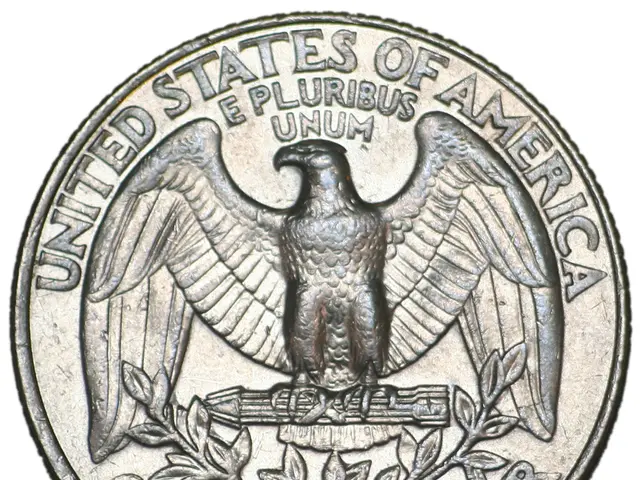A Guide to Distinguishing Between Cold and Allergy Symptoms
Distinguishing between Allergy and Cold Symptoms: Identifying the Cause of Your Misery
Considering the tricky overlap between cold and allergy symptoms, figuring out if you're battling a common cold or your allergies actin' up can feel like a head-scratcher. But don't worry, we've got your back! Here's the lowdown on the differences between these two pesky issues, along with some expert advice on when to see your doc for a proper diagnosis.
Cold Symptoms: A Viral Dance
Colds are caused by over 200 different viruses, with rhinovirus being the most common culprit. Though symptoms can vary, here are the tell-tale signs that might indicate you've been hit by the cold bug:
- Runny or blocked nose
- Sore throat
- Persistent cough
- Sneezing
- Headache
- Mild body aches
- Low-grade fever
If influenza, COVID-19, or respiratory syncytial virus (RSV) are making the rounds in your area, be aware that they can also result in cold-like symptoms, but they are generally more severe than a regular cold.
Allergy Symptoms: Reactions Galore
From pollen to dust, there exist a plethora of allergy triggers that will set off a similar response in your body. Classic allergy symptoms might include:
- Runny nose
- Blocked nose
- Persistent cough
- Sneezing
- Itchy skin, nose, or eyes
- Watery or red eyes
- Skin rashes
- Wheezing or shortness of breath
- Sinus pressure or headaches
In addition to these, some allergies can leave you feeling rundown, much like a cold (confusing, we know). "You might experience a kind of sick or fatigued feeling," says Dr. Katrina Johnson, an internal medicine physician.
Cold vs. Allergy: What's the Difference?
Given the similarity in symptoms, it's understandable if you're left scratching your head. Here are some red flags that could help you determine whether you're dealing with a cold or allergies:
- Signs of Infection: Colds often cause fevers, as well as swollen glands. Allergies, on the other hand, do not lead to fevers and usually do not cause glands to swell.
- Aches and Pains: Body aches and a sore throat are typically signs of a virus like a cold. While allergies can cause some post-nasal drip that results in throat irritation, it's unlikely that allergies alone would result in an extremely sore throat. Body aches are also uncommon with allergies.
- Itchiness: Allergies quite often result in itchy or watery eyes, while itchiness is rare with colds.
- Symptom Patterns: If you've had the same symptoms every year around the same time, it's likely seasonal allergies. Cold symptoms, on the other hand, are far less predictable and can strike at any time of the year.
- Duration of Symptoms: Colds usually last a few days to a week, while allergies can persist as long as you're exposed to the allergen and are not being treated.
- Recent Exposure: If you've been around someone sick with cold symptoms, it's more likely that you've caught a respiratory infection. Remember, you can't catch allergies from someone who's sick!
So, What's Your Move?
Recognizing the intricacies of cold and allergy symptoms can help you better understand your health. If, despite your best efforts, your symptoms aren't going away or are getting worse, it might be a good idea to consult your healthcare provider. They'll ask questions about your medical history, current symptoms, and perform a physical exam to determine the cause. If necessary, they may run tests to confirm a suspected cold or refer you to an allergist for further testing or stronger prescription medications.
Treating Colds and Allergies: Manage the Misery
Though there's no quick cure for a cold, there are plenty of over-the-counter medications that can help manage your symptoms:
- Nasal saline rinses or cool mist humidifiers can help relieve congestion.
- Mucus-thinning agents, such as guaifenesin, can help alleviate chest cold symptoms.
- Antihistamines (like those used for seasonal allergies) can help dry a runny nose.
- Non-steroidal anti-inflammatory drugs (ibuprofen, aspirin, or naproxen) can tackle headaches, fever, and body aches.
Treating allergies generally involves avoiding the allergen (if possible), using nasal steroid sprays, antihistamine eye drops, or oral antihistamine medications. In severe cases, your healthcare provider may refer you to an allergist for allergy shots or stronger prescription medications.
Remember, staying hydrated, resting, and avoiding contact with others who are sick can help reduce your risk of catching a cold or other respiratory virus. So, keep those hands clean and maintain some distance from those sniffles and sneezes when you can! With this knowledge, you'll be well-equipped to navigate cold and allergy season like a pro!
- Maintaining good nutrition is essential for overall health and wellness.
- Exercise and fitness play an important role in boosting cardiovascular health and managing chronic diseases like chronic kidney disease and cancer.
- The latest news in environmental science reveals that climate change is impacting our digestive health by altering food production and accessibility.
- Eye-health is often overlooked when it comes to general fitness and exercise, yet it is crucial for maintaining good vision and preventing conditions like cataracts and glaucoma.
- Regular exercise and proper hearing care are vital for healthy aging, as they help ward off hearing loss and other age-related conditions.
- In the realm of health and wellness, staying current on medical conditions, chronic diseases, and therapies and treatments is essential for making informed decisions about personal health.
- Fitness-and-exercise industry experts suggest that incorporating diverse workout routines, focusing on functional fitness, and staying consistent can aid in ensuring long-term health.
- Autoimmune disorders can impact various systems in the body, necessitating the need for our understanding of them for effective autoimmune disease management.
- Skin-care is an integral part of a holistic approach to health and wellness, as it can help preserve the integrity of our largest organ and prevent skin conditions.
- Healthcare professionals often recommend that individuals with chronic-kidney-disease manage their diet and stay hydrated for optimal health outcomes.
- Regular testing and monitoring of nutritional levels is essential for those undergoing cancer treatments for effective care and recovery.
- As a responsible consumer, keeping an eye on what's going on in the manufacturing and retail sectors can help ensure the quality of your skin-care and health-related products.
- To my fellow entrepreneurs and small-business owners, don't forget that environmental-science is crucial when it comes to identifying market trends and opportunities in industries like agriculture, energy, and transportation.
- Adequate sleep is crucial for the functioning of our immune system, as well as overall cognitive and physical well-being.
- Investing in therapies-and-treatments, such as CBD, can help manage chronic pain, anxiety, and inflammation.
- With advances in artificial-intelligence and technology, wearables and smart-home devices are revolutionizing the way we approach health and wellness.
- Cybersecurity measures are essential for safeguarding personal information, particularly when it comes to finance, investing, and wealth-management in today's digital world.
- The automotive industry is adapting to the ethical and environmental implications of climate change by focusing on cleaner energy sources, such as electric vehicles and hybrids.
- Diversity-and-inclusion initiatives in the workplace and business are essential for fostering creativity, innovation, and better decision-making.
- As leaders, recognizing the importance of promoting diversity-and-inclusion in our organizations can help set the stage for long-term success and positive social change.
- In today's hyper-connected world, gadgets, smartphones, and technology are integral to our everyday lives, and they can play a vital role in improving our health and wellness.22.Effective budgeting is crucial for managing personal finances and savings, as it can help prepare for unexpected expenses and achieve financial stability.
- Managing debt responsibly is vital for maintaining a strong financial standing, as it can help protect your credit score and reduce stress.
- Navigating the housing-market, whether buying or renting, requires careful analysis of market trends and understanding of financing options.
- Venture-capital can play a crucial role in funding innovative solutions in industries such as health-care, technology, and clean energy.
- Personal-finance management can help individuals secure a better financial future by focusing on conserving, investing, and planning for their retirement.
- Banking-and-insurance institutions are adapting to the digital age by offering online and mobile services, making it easier to manage financial affairs.
- The real estate market can be volatile, but understanding the commercial and residential trends can help investors capitalize on opportunities and mitigate risks.
- The stock market is an important aspect of the global economy, and its movements can impact the financial well-being of individuals and businesses alike.
- Small-business owners must be cognizant of private-equity firms and their potential impact on the business landscape, as they can bring resources, expertise, and growth potential.
- Saving for a rainy day and managing debt are the foundation of a strong financial future, and they are essential tools for maintaining wealth in the face of life's uncertainties.








